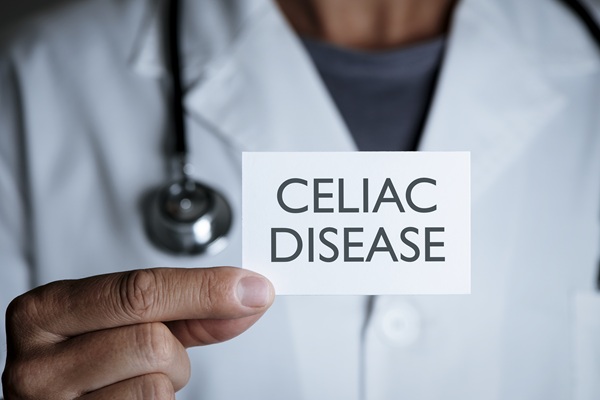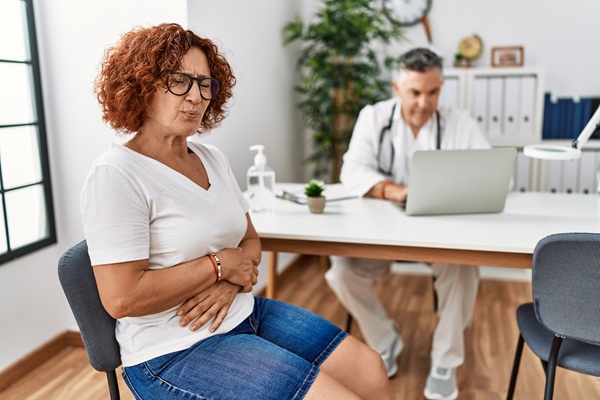Hemorrhoid TreatmentForest Hills, NY
Hemorrhoid treatment can help offer much-needed relief from discomfort and pain caused by swollen veins in the rectum or anus. This common condition can affect anyone and range from mildly irritating to severely debilitating. However, with professional care, patients can find effective solutions that promote lasting relief and improved health.
Hemorrhoid treatment is available at Pinnacle Gastroenterology in Forest Hills, NY, and the surrounding area. Call us today at (718) 747-9630 to schedule an appointment to learn how we may help you with your symptoms.
Understanding Hemorrhoids
Hemorrhoids are swollen veins located in the lower rectum or anus, and they fall into two main categories: internal and external. Internal hemorrhoids develop inside the rectum and are typically painless but may cause bleeding. External hemorrhoids occur under the skin around the anus and can be painful, especially if a blood clot forms.
The condition can result from several factors, including chronic constipation, prolonged sitting, straining during bowel movements, pregnancy, or obesity. Hemorrhoids are extremely common, affecting about 1 in 20 Americans, with prevalence increasing with age.
“Internal hemorrhoids develop inside the rectum and are typically painless but may cause bleeding. External hemorrhoids occur under the skin around the anus and can be painful, especially if a blood clot forms.”
Signs and Symptoms
Recognizing the signs of hemorrhoids is the first step toward receiving proper care. Common symptoms include:
- Itching
- Rectal pain or discomfort
- Swelling around the anus
- Bright red blood in stool or on toilet paper
- Feeling of an incomplete bowel movement
A lump near the anus may indicate a thrombosed external hemorrhoid. While this type is not necessarily dangerous, it can be particularly uncomfortable and require medical intervention.
While some mild hemorrhoids may resolve on their own, persistent or severe symptoms warrant professional evaluation. If bleeding continues, worsens, or occurs with other concerning symptoms, a medical examination is necessary to rule out more serious conditions such as colorectal cancer or anal fissures.
“While some mild hemorrhoids may resolve on their own, persistent or severe symptoms warrant professional evaluation.”
Diagnosis and Evaluation
A gastroenterologist can diagnose hemorrhoids through a combination of patient history, physical examination, and diagnostic procedures. During a visual exam, the physician may identify external hemorrhoids. For internal hemorrhoids, tools such as anoscopy or sigmoidoscopy allow direct visualization of the rectum to assess severity and rule out other conditions.
Proper diagnosis is crucial to ensure the symptoms are not due to other gastrointestinal disorders. Rectal bleeding, for instance, could signal polyps, cancer, or inflammatory bowel disease. Accurate evaluation helps guide treatment decisions and gives patients peace of mind through medical assessment.
“During a visual exam, the physician may identify external hemorrhoids.”
Treatment Options
Hemorrhoid treatment often begins with conservative measures, especially for mild cases. Increasing fiber intake, drinking plenty of fluids, and using over-the-counter creams or suppositories may provide symptom relief. Warm sitz baths can also soothe irritation and reduce inflammation.
A provider may recommend in-office procedures when conservative treatments are ineffective. The most frequent in-office procedure is rubber band ligation. This intervention involves placing a small band around the hemorrhoid to cut off blood supply, causing it to shrink.
Another procedure called sclerotherapy uses a chemical injection to shrink the affected vein. More advanced cases may require a referral to a colorectal surgeon for a hemorrhoidectomy—a surgery to remove hemorrhoidal tissue. These interventions are usually safe and provide long-term relief when performed by a qualified specialist.
“A provider may recommend in-office procedures when conservative treatments are ineffective.”
Prevention and Long-Term Management
Preventing hemorrhoids or avoiding recurrence can involve simple lifestyle changes. A diet rich in fiber from fruits, vegetables, and whole grains helps maintain regular bowel movements. Additionally, staying hydrated and avoiding prolonged sitting can reduce pressure on rectal veins. Regular exercise and maintaining a healthy weight also contribute to better digestive health.
Ongoing care with a gastroenterologist supports long-term management, especially for individuals with a history of hemorrhoids. Scheduling routine checkups and promptly addressing new symptoms ensures continued well-being and minimizes the risk of complications.
“Regular exercise and maintaining a healthy weight also contribute to better digestive health.”
Questions Answered on This Page
Q. What are the symptoms of hemorrhoids?
Q. How are hemorrhoids diagnosed?
Frequently Asked Questions
Q. What causes hemorrhoids to develop?
A. Hemorrhoids often result from increased pressure in the lower rectum due to straining during bowel movements, chronic constipation, obesity, or pregnancy. These factors cause veins in the rectal area to swell and form hemorrhoids. Sedentary behavior and low fiber intake can also contribute to the development of hemorrhoids. Understanding the root causes can help guide both treatment and prevention strategies.
Q. Are hemorrhoids dangerous?
A. While hemorrhoids can be painful and uncomfortable, they are generally not life-threatening. However, severe or persistent bleeding should always be evaluated by a medical professional to rule out more serious conditions, such as colorectal cancer. Untreated hemorrhoids can lead to complications like anemia or thrombosis, which may require medical intervention. Prompt evaluation helps ensure appropriate care and peace of mind.
Q. How are hemorrhoids diagnosed?
A. A gastroenterologist may diagnose hemorrhoids through physical examination and procedures like anoscopy or sigmoidoscopy. These methods allow the physician to view internal hemorrhoids and assess for other gastrointestinal concerns. The diagnostic process may also include a review of medical history and symptoms. Accurate diagnosis is essential for determining the most effective treatment plan and ruling out other possible causes of rectal bleeding or discomfort.
Q. What treatment works best for hemorrhoids?
A. The best treatment depends on the severity of the condition. Mild cases often respond well to lifestyle changes and topical medications such as hydrocortisone creams or witch hazel pads. In-office procedures like rubber band ligation or sclerotherapy are effective for more persistent cases. Surgical options, such as hemorrhoidectomy, may be recommended for large or recurring hemorrhoids. A gastroenterologist can help determine the most appropriate treatment based on individual symptoms and overall health.
Q. Can hemorrhoids come back after treatment?
A. Yes, hemorrhoids can recur if preventive measures are not taken. Following a high-fiber diet, avoiding straining during bowel movements, and maintaining a healthy lifestyle are key strategies to reduce the risk of recurrence. Regular physical activity and proper hydration also support digestive health and prevent constipation. Even after successful treatment, ongoing care and attention to bowel habits are important. Long-term management with a healthcare provider can help minimize future flare-ups.
Call Us Today
Pinnacle Gastroenterology provides specialized care for the prevention and treatment of digestive system disorders. Call us today at (718) 747-9630 to schedule an appointment or learn more about hemorrhoid treatment.
Contact Us
Pinnacle Gastroenterology is located at
112-03 Queens Blvd Ste 204
Forest Hills,
NY 11375





